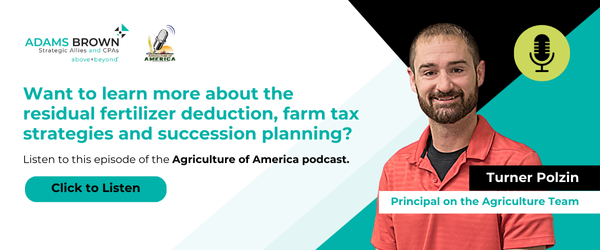Regulation & Cheap Imports Send European Farmers to the Streets in Protest
Maintaining a Regulatory Balance Essential to U.S Farmers
The scenes are borne out in a string of recent news photos and headlines. Farmers pelting government buildings in Brussels with eggs to protest costly environmental regulations without any financial government support. Farmers clashing with police in Warsaw as they protest cheaper food imports that put them at a disadvantage. And in Paris, French farmers sprayed manure on government buildings. Mon dieu!
It’s a tough time to be a farmer in the European Union countries. Across the continent, farmers are protesting stringent environmental and food purity rules that the EU places on them, which they say drive up their costs and push down their crop yields. At the same time, the EU is responding to consumer complaints about the cost of EU-grown food by allowing cheaper imports from non-EU countries, grown by farmers who are not bound by the EU’s rules.
Ban on GMO Seed
One example is the EU ban on growing crops with genetically modified (GMO) seed. Such crops are often heartier and produce higher yields with lower inputs. While EU farmers are not allowed to use GMO seed, they are now competing with cheaper GMO-grown imports from South America and other regions.
The resulting clash between farmers and government is emblematic of what happens when farmers are subjected to regulations that put them at an economic disadvantage, without receiving any compensatory support. Germany’s recent announcement that it would discontinue diesel subsidies and tax breaks for agricultural vehicles is a good example.
Such dissonance in the marketplace can lead to unrest, high inflation and disruption in the food chain. That’s what Europe is facing now, and here in the U.S. we can learn from that.
We’ve been fortunate that we haven’t faced the same thing because we produce more than we consume. If we fall short, it affects our exports but not our domestic consumers. But the same lessons they’re learning in Europe are valid here.
For example, the federal Clean Water Act of 1972 was the subject of legal challenges and murky court decisions for several decades, leading to widespread beliefs that the Environmental Protection Agency sought to define mud puddles as regulated waterways. The debate was only settled last year with a ruling in Sackett v. EPA that clarified the definition of a waterway as much narrower than anything that could be applied to a mud puddle. It was a victory for interests that fought what they considered to be overreach by the EPA, and for farmers who were concerned about temporary rain-fed ditches on their land subjecting them to EPA regulation.
Seeking a Balance
Governments around the world – including in the U.S. – have an obligation to do what they can to improve the environment. But that must include applying the same rules and regulations to everyone. If farmers are closely regulated on the amount of 2,4-D herbicide they can use on their crops, then homeowners also should be regulated. After all, 2,4-D is available to both the agriculture and residential markets.
Most people don’t realize that farmers, in general, are some of the best stewards of the environment in this country. They own their land, they farm the land and they want it to be there for future generations. But the laws of supply and demand always rule the day. If farmers are subject to regulations that significantly impact their yields and their ability to make a profit, our ability to feed our growing population will be threatened.
In Europe, there are indications that the farmers’ protests are being heard. The EU Commissioner for Agriculture announced that this year the EU will not impose punitive sanctions on farmers who do not comply with environmental or climate standards. Additionally, changes will be introduced by 2027 to soften the climate-related requirements of the European Green Deal.
Let’s hope that the balance between environmental regulation and support for farmers remains reasonable in this country, so we don’t see tractors clogging the streets of Washington, D.C.
If you would like more information about how regulatory issues affect you and your farm operation, contact an Adams Brown advisor.


